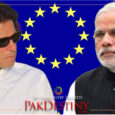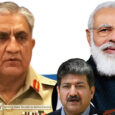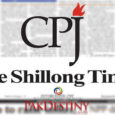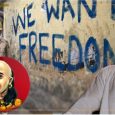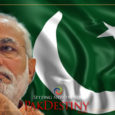Islamabad Jun 27: The Indian authorities have arrested seven media persons for publishing a photo of India’s new prime minister, Narendra Modi, alongside figures such as George W. Bush, Osama bin Laden, and Adolf Hitler, under the headline, “Negative Faces.”
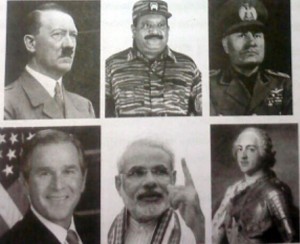
The seven, who could face lengthy prison terms if convicted, are but the latest Indians facing criminal proceedings for their critical views of Modi, a trend that is raising concerns about freedom of expression and press freedom under India’s new leadership.
Police pressed charges over the photos, published in a college magazine in the southern state of Kerala, after a top member of the ruling Bharatiya Janata Party’s (BJP) youth wing complained. Arrested in early June were four students, the magazine’s faculty adviser, the owner of the company that printed the publication, and later the principal of the Government Polytechnic College at Kunnamkulam, according to news reports.
Police also seized the printing press and computers used to design the magazine, along with hundreds of copies. The seven were later released on bail but face charges of defamation and criminal conspiracy. Conviction could bring stiff fines as well as prison terms.
This wasn’t the first time voices critical of India’s new prime minister have come under fire. Last month, just days after Modi was elected, authorities in Goa state filed preliminary charges against Devu Chodankar, a young naval engineer, for criticizing the prime minister on a popular Facebook group. Goa is led by the BJP.
In his post, Chodankar warned voters of “an imminent threat of Holocaust” and a threat to the identity of Goa’s Christian population if Modi was elected, according to news reports. Among charges against him, Chodankar was accused of printing hurtful religious sentiments under the Indian penal code and for violating a critical provision of the Information Technology Act, Section 66A, which bans messages that are “grossly offensive or (have) a menacing character.”
Police interrogated Chodankar for at least six hours and confiscated his laptop and hard drive. Chodankar has since apologized for his choice of words and deleted the post, but stands by the concerns he cited. “I won’t stop posting on Facebook and have become more active since,” he told CPJ. “There are elements that want to curtail free speech in India. Several things are happening that point to the fact that something is wrong about the direction we are taking.” Police are not pursuing a case against him, but they have not returned his equipment.
Journalists have also come under fire for their critical views of Modi. Shortly before Modi’s win, Priyamvada Gopal, a columnist and Cambridge University professor, faced harassment and threats following her opinion column in The Guardian. In her article, she criticized Modi for his deep ties to the extremist Rashtriya Swayamsevak Sangh and for his alleged role in the 2002 violence in his home state of Gujarat during which more than 1,000 Muslims were killed. (Modi was cleared of any wrongdoing by a special investigation team appointed by the Supreme Court, although some rivals and journalists have cast doubt on the investigation.)
“While I expected the piece to elicit disagreement, I was taken aback at the sheer quantity of the nastiness, vitriol and hatred that came my way in the form of Tweets and emails from professed Modi supporters,” Gopal later wrote. Some Tweets directed at Gopal called for sexual violence.
Nikhil Mehra, a lawyer practicing at the Indian Supreme Court, told CPJ that while he has not seen a sudden rise in the number of complaints and criminal proceedings aimed at curbing free speech, these recent events “are a matter of huge concern.”
Mehra says the problem is a continuation of free-speech curbs that also occurred under the Congress-led government over the past decade, and is due largely to Section 66A of the Information Technology Act and poor law enforcement. “Primarily because we don’t have a well-defined political speech exception in Indian law, statements regarding the (prime minister) have been dragged into the net of 66A,” he told CPJ. Many vaguely worded colonial-era laws also have a chilling effect on free speech, he said. “However, 66A takes it to a different level.”
To be sure, such criminal prosecutions and legal harassment have taken place under past governments–albeit sometimes at the behest of right-wing groups aligned with the BJP. And there is no indication that Modi is directly responsible for the recent moves by authorities.
But the government’s silence is also significant, in at least one case. After derogatory posts on social media led to a deadly attack on an information-technology professional in Pune this month, the Maharashtra state government called for a ban on websites like Facebook, and a top official called for India to emulate China’s censorship tactics. While these calls were at the state, not national, level, “the [ruling coalition] government’s studious silence over these arrests and the death of the Pune techie is ominous,” wrote Geeta Seshu of The Hoot, a South Asian media watch dog group. “No major minister or BJP leader has come out in support of free speech or against these arrests.” – CJP/Pak Destiny
Indian media men facing wrath of Modi for equating him with Hitler and OBL
June 27, 2014

